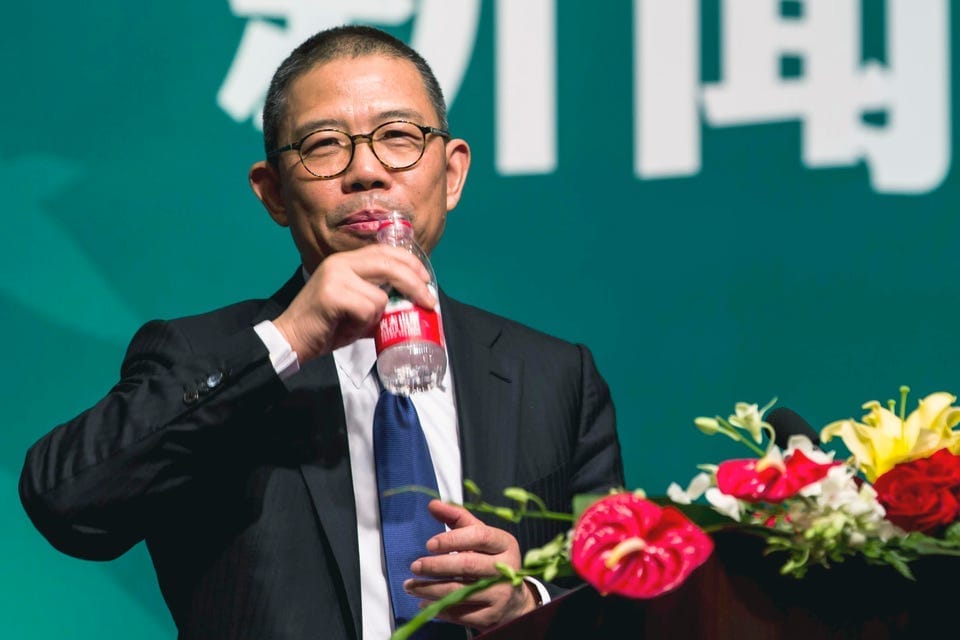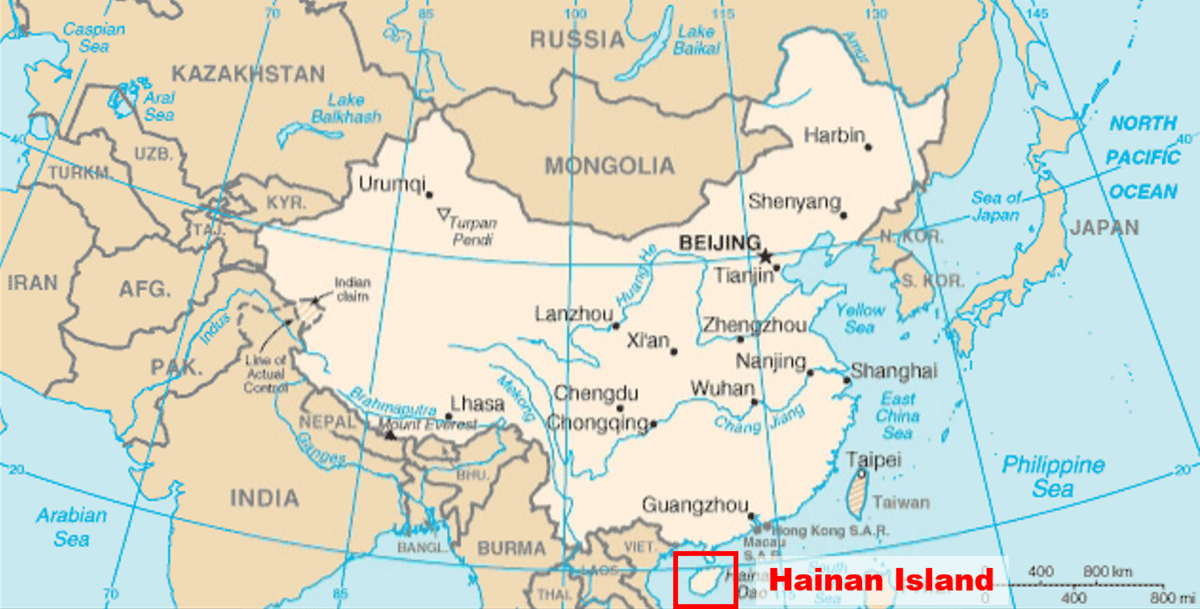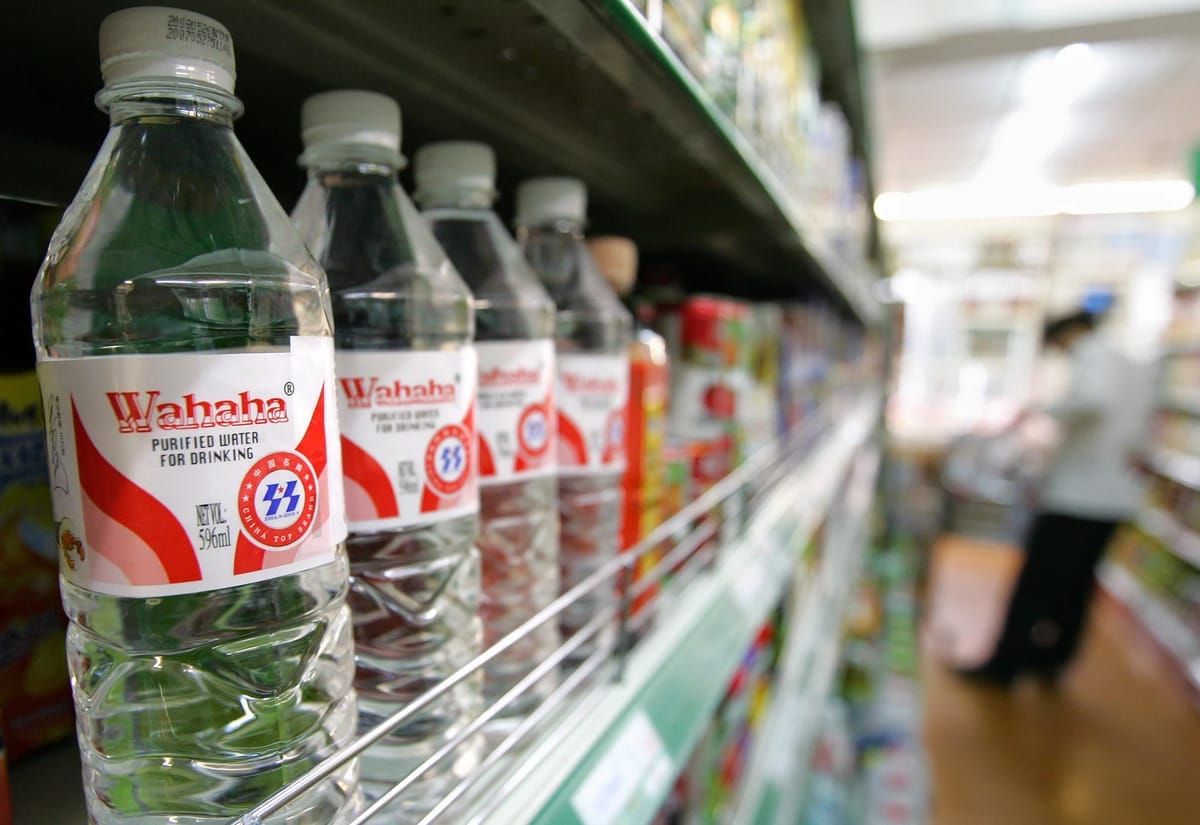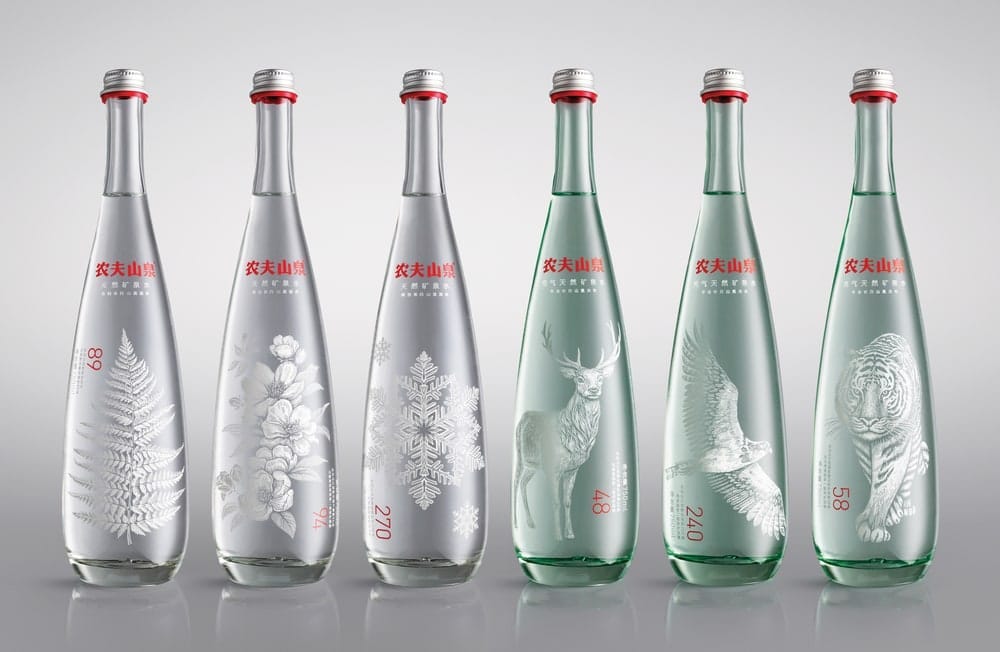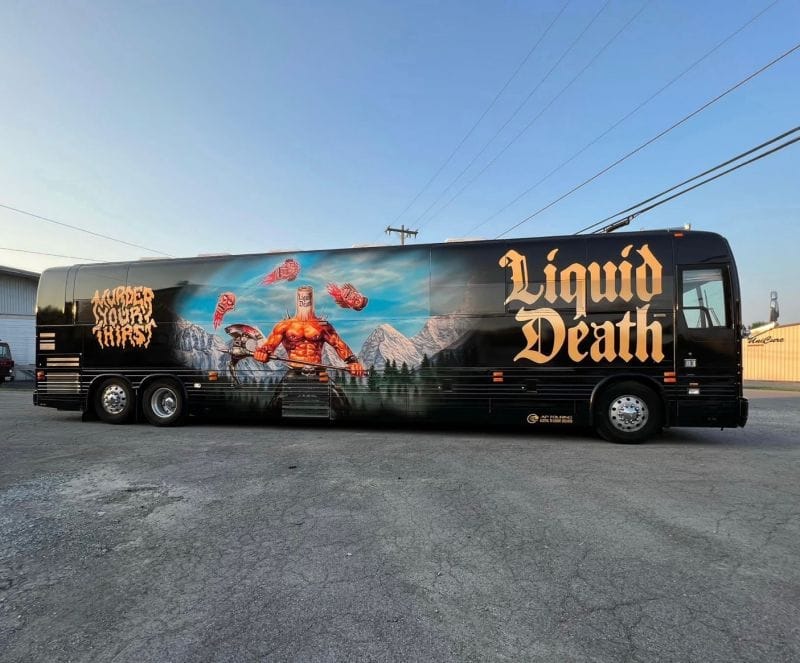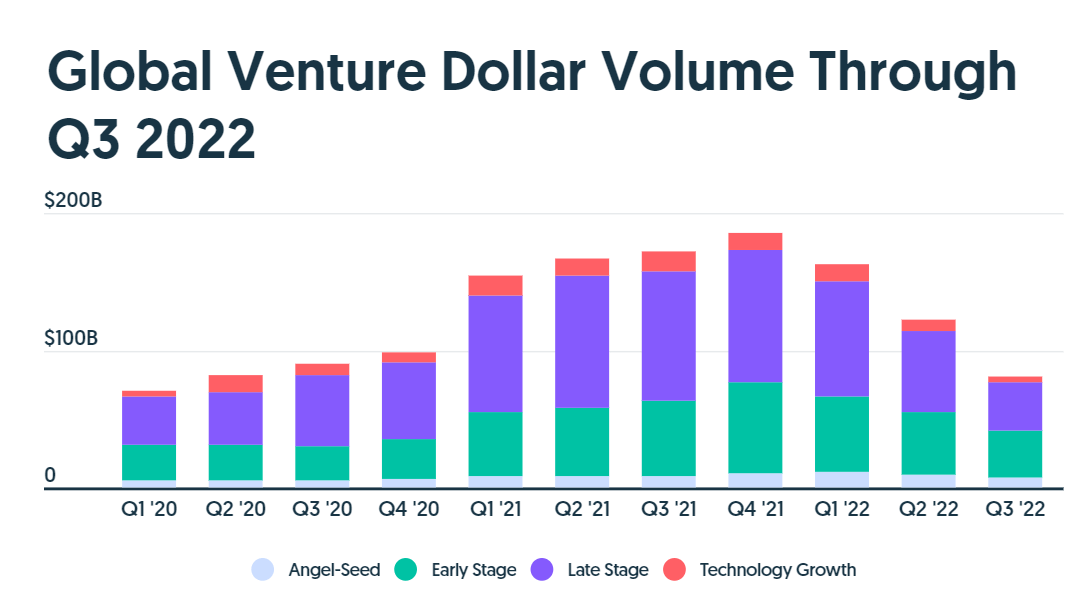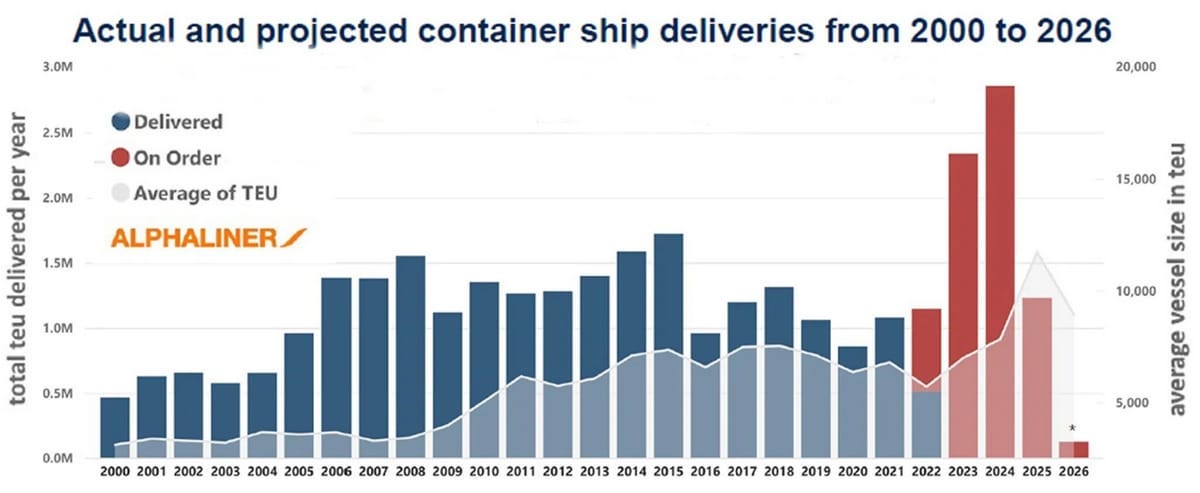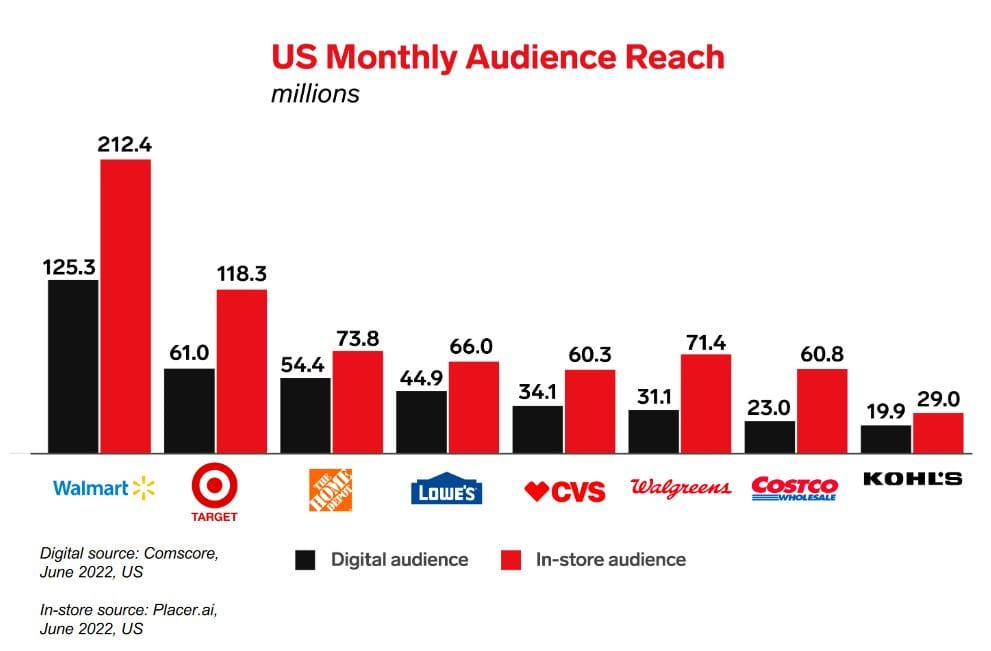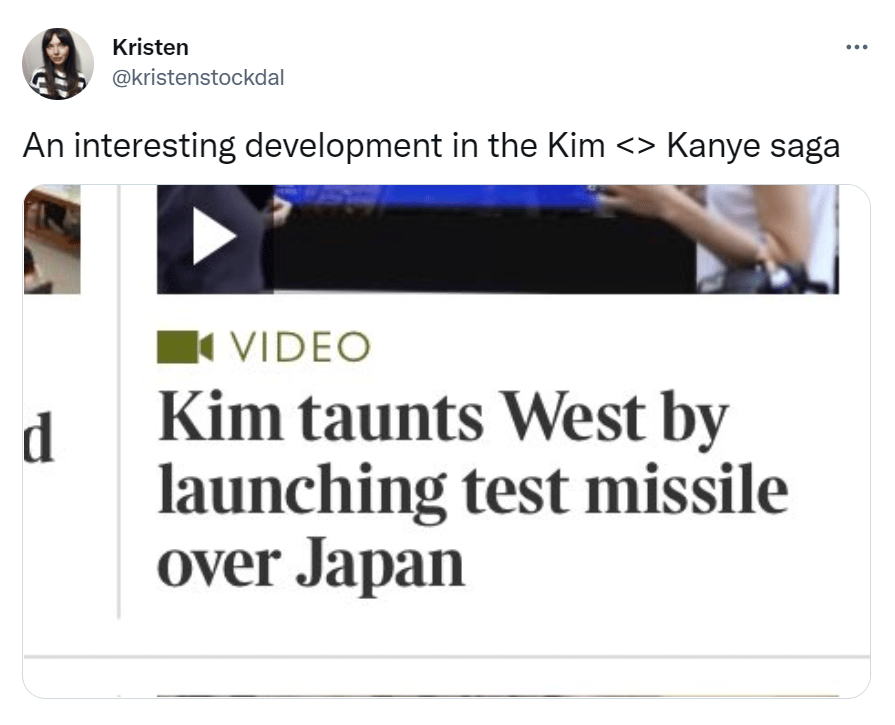China's Water King
The story of Zhong Shanshan, the fifth grade dropout who built two $10 billion companies
Happy Friday! I'm sending this a day late as we've have a lot going on at Banana. Some more to share soon 👀
On Monday, Liquid Death announced a $70 million Series D that valued the canned water company at $700 million. Launched in 2019, it recorded $45 million in 2021 revenue, and expects to reach $130 million in 2022. At first glance, a canned water valued at $700 million within three years sounds pretty ridiculous. And the funding news has rightfully attracted lots of attention (both praise and skepticism).
I don't know the exact performance of Liquid Death's underlying business. But it reminds me of the story of Zhong Shanshan, China's wealthiest individual. Worth $66 billion, Zhong has founded two separate $10 billion businesses, and in different industries too. Most of his wealth is attributable to Nongfu Spring, his bottled water empire.
China's Water King
Zhong Shanshan (also Zhong Suisui) was born in 1954 in Hangzhou, China to two college students. His parents were supposedly friends with Alibaba founder Jack Ma’s parents. Zhong’s family was forced to move during China’s Cultural Revolution in the 1960’s, and he dropped out of fifth grade, never returning to school. He spent the next decade traveling and without much stability.
His first job was laying bricks at construction sites and he soon learned carpentry. In 1977, he borrowed a friend's textbooks to study for the college entrance exam, only to fail twice. As the revolution ended, his family returned to Hangzhou. Zhong’s construction experience found him managing the facilities for the Zhejiang Federation of Literacy and Art Circles. He was intrigued by family members' roles at local radio and TV stations, and they helped him land a job as a reporter at the Zhejiang Daily. He spent five years covering the agriculture industry, traveling to more than 80 countries and interviewing over 500 entrepreneurs. Some later became his business partners.
In 1988, Hainan was established as a special economic zone. Zhong quit his job as a reporter and moved to the island to start a business. His initial idea was to set up the island’s first newspaper, but the government did not want any privately run media outlets and shut him down before he could print the first issue. He then leveraged connections he made reporting on agriculture to procure cheap mushrooms. Due to Hainan’s wide range of humidity (high in morning + afternoons and dry at noon), his mushrooms always dried up immediately after harvest. He eventually lost his entire investment. Then, Zhong tried a few other businesses, eventually finding success selling curtains, and then lost all his money again running a prawn farm.
By 1991, Zhong had become well-connected on the island. He had met fellow Hangzhou native Zong Qinghou while reporting, and began working for him as the Hainan region manager of what is now the Hangzhou Wahaha Group, currently China’s second largest water producer. Hainan's special economic zone allowed Zhong to source products at artificially low prices. He started selling these personally throughout other parts of China, pocketing the difference. This eventually got him terminated from Wahaha and planted the seeds for Nongfu Spring, kicking off a 30-year rivalry for China's water market.
Exploring more business ideas, Zhong finally realized a truth he held for the rest of his career: "a successful business must have unique products that are low-cost and high-priced". He found his next idea in Turtle Pills. One traditional dish in Hainan was a soup made from local turtles, which were believed to have healing properties. In 1993, Zhong raised money with a partner to start Hainan Yangshengtang Co and launched the “Yangshengtang Turtle Pill”. It was a hit.
With a successful self-sustaining business under his belt, Zhong wanted to get back into the beverage industry. While at a market in Jiangxi, he discovered a new strain of sweet oranges he figured could be used for a new flavor of orange juice.
Water as a Wedge
In June of 2001, Zhong founded the Zhejiang Qiandaohu Health Tang Drinking Water Co, which eventually became Nongfu Spring. He finished building his first factory only to realize this new strain of orange couldn’t be used for juice because it was too sweet and oxidized too quickly (Nongfu finally released the product in 2016).
Despite the setback, the factory was suited for water production, and Zhong quickly launched his first water product. Over the next 25 years, Nongfu used its water business to successfully expanded into over 10 new product categories. This included its trademark water (early 2000's), vitamin water (2010), tea (2012), fruit (2014), mineral water, juice, soft drinks (2016), coffee (2019), fruit, yogurt, and rice. By 2012, Nongfu surpassed Wahaha to become the largest bottled water producer in China, and is now within the top three largest in bottled tea and juice.
In 2016, Zhong turned back to pharmaceuticals and launched Hongzhou Yangshengtang. Vaccines came next (and then COVID test kits), launching Wantai Bio soon after. In 2021, Wantai reported nearly $800 million in revenue at 85% gross margins. Zhong owned over 75% when it IPO'd in 2020.
Nongfu also went public in 2020 - two events that put Zhong's previously undisclosed success into the spotlight. In the first half of 2022, Nongfu did roughly $2.32 billion in revenue (up 9% over 2021) at a 37% EBITDA margin (up from 35%). Zhong still owns 84% today, with family members also owning small stakes.
With dominant market share in two high margin markets, there's a lot to be learned from Zhong's success. What was his secret? Marketing.
Building Trust With Event-Based Marketing
Zhong is rumored to have personally invested in over 100 businesses. For each brand Zhong and Nongfu launches, he identifies a unique entry positioning in the market. For example, his "Mother's Original Beef Sticks" brand has a story about a boarding school student who's mother spent years perfecting the perfect beef recipe, sending him weeks of supply at a time. Sharing the beef with classmates made her son the most popular student in school. Parents identified with the snack and bought it for their kids.
Zhong first launched his Turtle Pills through intimate closed door events. This helped build consumer trust with what was at the time an entirely new product category. Nongfu's water product first launched as a tastier and safer alternative to tap water. Zhong ran national TV campaigns centered around global events, building social proof through inspiring ads during the World Cup and Olympics.
When launching its vitamin brand in 2003, the SARS virus was raging across the country. Yangshengtang paused all campaigns and focused all its marketing around supporting the epidemic. It ran national TV ads paying tribute to medical staff and was the first to donate vitamins to the Ministry of Health (how vitamins helped fight SARS is beyond me).
Liquid Death: Building Distribution Through Unique Product and Event-Based Marketing
Re-visiting Liquid Death, its co-founder and CEO Mike Cessario had the insight to create a water brand catered to an alternative culture. With its skull logo, flavors like "Berry It Alive" and "Mango Chainsaw", and trademark #DeathToPlastic hashtag, it has similarly leveraged unique product positioning. And its flashy aluminum cans:
Taste better than bottled water: Taste is subjective depending on the consumer, but canned water stays colder for longer. Plastic containers also often leak chemicals and plastic flavoring from the container into the water, which impacts how it tastes.
Are more environmentally friendly than plastic: Aluminum cans create 2x more carbon per unit than single-use plastic when produced, however are known to be infinitely recyclable. Even if its difficult to measure the exact carbon footprint, the perception of single-use plastic has soured over the years, especially with younger consumers (which is ultimately a marketing strategy).
Look like alcohol: This may seem small, but arguably the largest emerging trend in beverage is low or no alcohol drinks. This is often discreet, and Liquid Death looks like it could be a heavy IPA, hard cider, or even a canned soda.
Develop unique distribution channels: While most retailers sell bottled water, many restaurants and liquor stores don't. Liquid Death's aluminum can allows it to build a wider base of distribution channels, making it more valuable as it layers on more products over time.
The product feels natural in large gatherings like concerts and music festivals, and you look cool drinking it. Peter Pham at Science, who led Liquid Death's Seed, Series C, and D rounds, is infamous in tech circles for showing up to social gatherings handing out cases of LD. He turns them into flash marketing events.
Live Nation, the concert-organizer and owner of Ticketmaster, recently announced it would exclusively sell Liquid Death water at its music festivals (it also invested in LD's most recent round). And rapper Wiz Khalifa first invested, and then wrapped his tour bus in Liquid Death branding. LD created a relatable brand people want to be associated with.
Science thinks Liquid Death may be the fastest growing non-alcoholic beverage of all-time, reaching the same revenue as Monster ($47 billion valuation today) and Celsius ($7 billion) within three years vs four and 12 years, respectively.
Earlier this week Liquid Death announced an iced tea brand launching in 2023. It also sold a "bong water" in partnership with Wiz Khalifa - literally the same water in a new can, hinting at the potential in adjacent products like THC-infused water. These new products should, in theory, see faster revenue growth than Liquid Death's first product since its now built existing distribution channels with 60,000 sellers across the US.
It remains to be seen how big a US canned water company can become. But as it turns out, selling water in China is a pretty good business.
Other Reads
Global VC funding in Q3 down 53% from 2021: And down 33% from Q2. More from Crunchbase.
Naver acquires Poshmark for $1.2 billion: A brightspot in what has been a rough year for the secondhand retail market. RealReal and ThreadUp are down 93% and 87%, respectfully, from their 2019 and 2021 IPO. More from TechCrunch.
Record container ship deliveries expected in 2023 and 2024: Amidst now crashing container rates, shipping companies put in record orders for new ships during the past year's historically high shipping prices (this happens every cycle). More supply, equivalent to 30% of current global shipping capacity, should help put downward pressure on shipping rates for the foreseeable future. More from FreightWaves.
Retailer US Monthly Audience Reach: Most surprising to me is Kohl's reaches nearly 20 million consumers online each month. 64% of the population steps foot in a Walmart-owned store each month. Full report from Insider Intelligence.
Lebron buys Major League Pickelball team: Started in 2021, the MLP plans to expand from 12 to 16 teams across six cities across the US. The More from CNBC.
Career Services
Banana Talent Drop #4 will go live this upcoming Sunday, October 9th. If you're looking for a job at a startup, apply here (anonymously if you choose), and sit back for interview requests from startups delivered right to your inbox.
If you're hiring and want Drop #4 in your inbox, sign-up here (Banana portfolio companies reach out for free access). The collective includes employees from all the companies below, plus many startups you've probably heard of (to protect anonymity, I'll never disclose the name of a startup someone works at with less a thousand employees).
If you're just looking or want to get more eyes on a one-off posting, list of 56 openings across Banana Cap and our broader network here.

